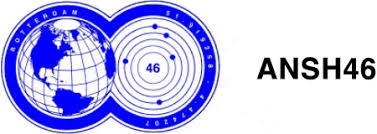Economic Ownership of Shares: Benefits and Implementation
Introduction to Economic Ownership of Shares
Shares have two rights:
- Profit rights
- Voting rights
Profit rights represent economic ownership, while voting rights represent legal ownership.
This distinction is important because when it comes to employee participation, companies prefer to grant employees economic ownership but not legal ownership. The reason is simple: employers want the employees to reap the financial benefits when the company increases in value, but they do not want employees to have influence over the company’s management.
Therefore, it is often chosen to separate the two rights from each other. This can be done through a Foundation Administrative Office (STAK).
Get your employee participation plan. Fixed price, arranged instantly.
- Transparent fixed price – no surprises afterwards
- Personalized plan, fully tailored to your company
- Ready-to-use Word or PDF template: buy once, use unlimited for all your employees
































































What is a STAK?
A STAK, or Foundation Administrative Office, is a legal entity used in the Netherlands to manage and administer shares of a company. The main goal of a STAK is to separate economic ownership and voting rights of shares. In a typical setup, shares are transferred to the STAK, which then issues certificates of shares to the original shareholders. These certificates give the holder the right to economic benefits, such as dividends, but not the voting rights normally attached to the shares. The voting rights remain with the STAK, which exercises this according to the statutes and regulations of the foundation. This mechanism is often used to concentrate or protect control within a company, for example, to prevent hostile takeovers or to ensure the continuity of management.
Advantages of Economic Ownership for Employees
Economic ownership of shares can offer many advantages for employees:
- Financial Involvement: Employees receive a share of the profits as the company grows, which can lead to additional income on top of their salary.
- Motivation and Engagement: When employees have a financial stake in the company’s success, they are often more motivated and engaged in their work.
- Retention of Talent: By giving employees an economic stake, companies can retain talented employees for a longer period.
Alternatives for Employee Participation
Establishing a STAK can be quite complex and costly. In the Netherlands, there are also alternative ways to engage employees:
Options
Options give employees the right to buy shares in the future at a predetermined price. This is an advantage if the value of the shares increases, as employees can then buy them at a lower price.
Stock Appreciation Rights (SARs)
Stock Appreciation Rights (SARs) allow employees to benefit from the increase in the company's value without actually having to purchase shares. They receive a cash amount equal to the profit they would have made if they had bought shares. This is useful if they do not want or cannot purchase the shares themselves.
Bonus Schemes
Bonus schemes reward employees with extra cash or shares when the company performs well. This offers a direct way to financially benefit from the company's success. The advantage of this is that it is often an additional perk on top of the employee's regular salary. A potential disadvantage is that bonus schemes can sometimes be temporary rewards and do not always provide a lasting stake in the company.
Profit Sharing
Profit sharing is a scheme where employees receive a portion of the company's profits. This is usually paid out in cash. Profit sharing is often dependent on the financial performance of the company and can be paid out annually or periodically.
How RoundE Can Help
At RoundE, we help companies make the best choice that fits their organization and employees. We ensure a clear and legally compliant execution so that everyone can benefit without worries. Our experts guide you at every step, from choosing the right participation scheme to implementing and administering it. Would you like to learn more about how we can assist your company? Contact us and discover what we can do for you!
Conclusion
Separating economic and legal ownership of shares offers many benefits for both companies and employees. Employees can benefit from the financial growth of the company without having influence over management, which is an attractive option for many companies. Although establishing a STAK can be complex, there are various alternatives available that can also effectively engage and motivate employees. RoundE is ready to help you choose and implement the best solution for your company.
Which participation plan suits your company?
Request a free intake. In 30 minutes we discuss your needs and determine which plan suits your company.
What is EBITDA? And how do you calculate it?
Learn what EBITDA is, how to calculate it, and why it is important for companies and employee participation plans.
Employee Participation Improves Company Culture
Discover the powerful impact of employee participation on company culture and how it can lead to a more engaged and motivated team.